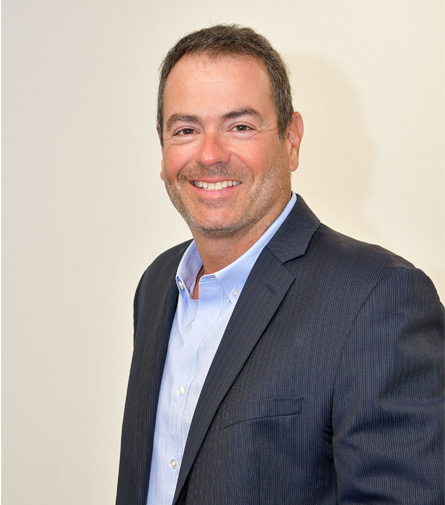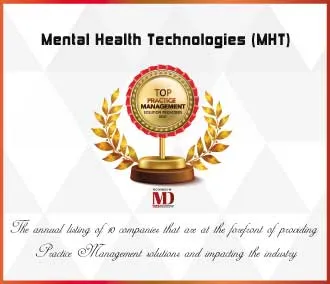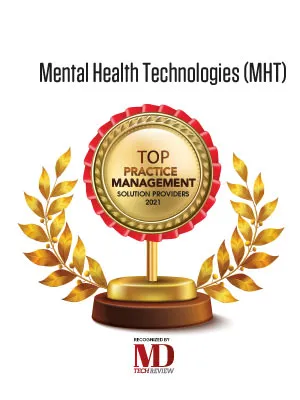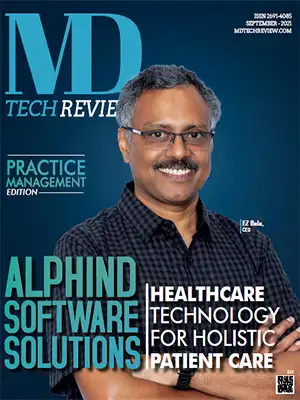 Ernie Wallerstein, President and Founder
Ernie Wallerstein, President and FounderWith a keen focus on providing efficient technology that enables healthcare professionals to consistently provide mental healthcare services to patients, Mental Health Technologies (MHT) leads the way in its use of technology to better screen patients and gather objective data in mental healthcare. MHT offers an online (SaaS) assessment platform that enables healthcare professionals to screen and test patients for mental health and substance abuse issues to objectively improve a patient’s journey to wellness. In a conversation with the editorial team at MD Tech Review, Ernie Wallerstein, President and Founder of MHT, discusses how his company has been providing innovative solutions to address the challenges around mental wellness.
Could you elaborate on the inception story of MHT?
I have worked in the field of cloud computing and software platforms my whole career. When it comes to mental healthcare, I noticed a significant void in the services provided to screen patients and collect objective data. With the help of efficient technology, healthcare professionals would be able to provide mental healthcare services to patients consistently across the country. The demand for mental health and drug abuse screening is immense, but there aren’t enough people to deal with it. We aim to provide efficient tools not only to the mental health industry to treat patients but also for healthcare professionals who aren’t necessarily experts in mental health to screen patients. This helps healthcare professionals to understand if the patient needs further assessment, has to be referred to a mental healthcare/ substance abuse professional, or if they need to consider that mental health issues are comorbid with the primary symptom.
For instance, when someone has back surgery and is put on a physical therapy regimen, the time taken to recover is going to take longer if the person is also depressed. It becomes vital to understand if the patient is already suffering from another underlying condition while the doctor treats the primary issues. The problem is enormous, but the technology applied is not enough to address it. Even as the economy bounces back from COVID-19, mental health remains one of the biggest healthcare issues in the U.S. There are so many patients out there who need help but have no access to it. That is one of the reasons I founded MHT in 2018 to equip healthcare service providers with efficient tools to combat mental health issues.
How has COVID-19 impacted the mental health of people, and how does MHT stand to help?
The pandemic has exacerbated mental health issues. With massive disruptions in the education industry, children were forced to study at home and acclimatize with isolation.
Our goal is to bring innovation through technology to aid healthcare professionals in addressing the overwhelming and growing challenge in providing services for mental health and substance abuse
Everyone had to adapt to the work-from-home conditions and the resulting stress. The thing is, humans are conditioned to be social, and if that element is taken out of your life for more than a year, there will be a great deal of anxiety, stress, and depression. A majority of a child’s time is spent with their classmates and friends, which was remove abruptly, impacting their social behaviors. COVID-19 has also shed light on the pressing need for more healthcare professionals to be empowered with tools to cope with the increasing number of patients suffering from mental health and substance abuse issues. COVID-19 also created the need for healthcare professionals to learn how to use technology, such as teleconferencing, to help patients remotely and even offer services after work hours.
As such, MHT uses its technology solutions to bring an objective perspective into the overall progress of the patient population and portray the implications of the persisting issues in mental healthcare.
Could you elaborate on how the MHT app helps healthcare professionals screen and test patients for mental health issues?
The MHT platform allows healthcare practices to electronically send DSM-IV or DSM-V compliant screening tests to patients. These tests (or assessments) are focused on mental health and substance abuse disorders.
We facilitate these tests on our platform and allow healthcare professionals to consider additional information to determine the appropriate type, and level of care to give their patients. We test for a myriad of mental health issues, such as depression, anxiety, OCD, post-traumatic stress syndrome, suicidal behavior, or even general wellness. Healthcare professionals can send the tests to patients electronically, via email, or text message.
Our tests can be taken by patients electronically or can be filled in by professionals if the patient is incapacitated. The MHT platform provides objective data points that allow healthcare professionals to map out a more efficient path to holistic wellness for the patient.
What steers MHT ahead of its competitors?
MHT’s aim is to horizontally integrate the mental health process, with a focus on ease-of-use. We target five audiences: the administrator who sets up the appointments for the test, the patient who takes the test, the healthcare service provider who reads the results, the biller for insurance and billing, and the management that effectively uses the objective data points collected by the platform to improve the overall quality of care.
Patients can take a test on their cell phone, email, or at the doctor’s office. If interrupted, patients can pick up where they left off. We send reminders to patients to complete their tests before visiting the doctor and provide healthcare professionals with easy and immediate access to information. We also alert people if a patient is struggling or is suicidal. With our solution, healthcare providers can not only provide better care to their patients but also generate revenue to cover that care.
Architecturally, our platform runs on Amazon Web Services, and we are entirely HIPAA compliant. We perform stress testing regularly for strong cybersecurity and have a very secure cloud-based environment.
What does the future hold for MHT?
We have several patents pending in terms of technology, which are submitted to the United States Patent and Trademark Office (USPTO). These patents are focused on the efficiency in the delivery of the tests and data analysis to deliver more insights into the efficacy of treatment based on preexisting comorbid mental health disorders.
We have many innovations planned for our platform, with a near-term focus on ADD/ADHD testing, telemedicine and advanced AI integration. For ADD/ ADHD testing, traditionally forms are mailed to parents and teachers. This makes for an inefficient and manual process. We have made this whole process electronic; patients, their guardians, and their teachers can electronically fill in ADD and ADHD assessments, and the data will be available to the healthcare provider immediately. MHT is also planning to partner with tele-video companies specializing in telepsychology to enhance the level of care provided remotely. We are also looking to integrate AI and machine learning engines into our platform to take our data and cross-reference it with the healthcare information for the patient. This will provide the healthcare providers with benchmarking and considerations related to the patient’s mental condition, substance abuse issues, or comorbidity with other conditions.
Company
Mental Health Technologies (MHT)
Headquarters
Aurora, IL
Management
Ernie Wallerstein, President and Founder
Description
MHT is an online (SaaS) assessment platform that enables healthcare professionals to screen and test patients for mental health and substance abuse issues to objectively improve a patient's journey to wellness. The MHT platform allows healthcare practices to electronically send DSM-IV or DSM-V compliant screening tests to patients. The company facilitates these tests on its HIPAA-complaint platform and allows healthcare professionals to consider additional information to determine the appropriate type, and level of care to give their patients





